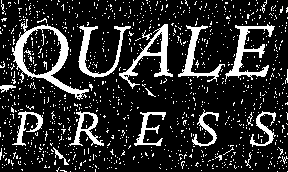|
On Sur la route & Cecilia Woloch
“Woloch’s book is sublime. I love the pace, the voice and the sensuality of the descriptions. It is very French! And there is not a word out of place. I have the images of her, the beds, the coffee and smokes inhabiting my brain. Wonderful!” —John Skoyles
“Reading the book was a lot like sipping champagne—perfect, to break it up into small hits. The prose is like the dream water—‘quick and bright, transparent and sparkling clear.’ It could have been presented in any other format, allow[ing it] to—effervesce.” —Mary Ann Taylor-Hall
“Every luscious word in Woloch’s novella counts. The 204 vignettes, described as ‘vivid, poetic episodes’ . . . ‘sexy, intriguing,and passionate’ . . . are so much more than that. It's about discovering Paris and all it has to offer, from the people who inhabit it to the inner beauty of the city that is like no other to what Woloch was experiencing from the inside. The prose will open your own heart as she has opened hers and as she opened mine.” —Adrian Leeds in ParlerParis Nouvellelettre
“[T]he beguiling, tough-minded yet dreamy novel Sur la route reads exactly like a series of prose poems, set in sequence: a series of impressionistic moments that develop into a spontaneous narrative of a young woman’s solo European experience. Set mainly in Paris (after the protagonist’s flight from L.A.), it is like a free-spirited woman’s answer to Kerouac— episodic, romantic, impulsive, with pure lyrical drive.” —Carol Muske-Dukes in The Huffington Post
“A gorgeous and nuanced novel-in-vignettes. Sur la route is lush and intimate, like Cecilia Woloch's poems and like Paris itself.” —Ruth Madievsky
From Sur la route...
One
My plane leaves for Paris in less than an hour. I'm not sure my luggage is going to hold up: a roll-aboard with a zipper that sticks; a carry-on heavy with journals and books, its straps already stretched too thin.
I've crammed everything I think I'll need for a month into these two bags.
Mid-November and it's eighty-three degrees in Los Angeles. Mid-morning and the sky's a milky blue tinged with smoggy gold.
The cab drops me off at LAX. I drag my bags through the sliding glass doors into the terminal, flooded with sunlight, already sweating under the coat I've slipped on so that I won't have to carry it.
I've checked the roll-aboard and rushed to the gate before I remember what I forgot: I don't have a way to reach Jack in Paris; we haven't made any plans for how we'll meet one another there. I find a payphone and dial the number of his house in New Mexico, relieved when I hear his voice.
"Bonsoir, Susannah!" he chirps. Though it's bright day outside everywhere — except in Paris, where it's dusk.
"That's evening," I tell Jack. "That means good evening."
"Oh," he says. He's coming to France in two weeks; he'll need to know how to say hello.
"Do you have a number in Paris?" I ask. "How will I get in touch with you there?"
"Call Pierre," and he gives me the number. "Pierre's English is better than Isabelle's. Call him as soon as you get to Paris, and ask him to call Isabelle. Ask him to ask her to call me here. I want to be sure I can stay at her place."
I add Pierre's number to the list of names and numbers in my notebook, a list that's grown in the past few days.
"And how will I find you there?" Jack asks.
"I have no idea," I say.
And then I hear my flight being called — the final call for boarding — so I pick up my carry-on, and run.
Two
And what am I running from? Los Angeles falling away, already, beneath me — forever: too bright, too flat. My life as a stranger everywhere. The way I keep failing and failing at love. My fear of being trapped inside that shining flatness, too. Perhaps what Baudelaire described as l'horreur du domicile.
And what am I running toward that I've only glimpsed but keep longing for? A city with grit on its heels and the smell of tobacco on its breath. A river that glimmers, as if with stars. A world inside the world, just out of reach, more real somehow.
It's 1994; I've just turned 38 years old, an age when a woman in Los Angeles begins to disappear. Okay, I think, disappear. Close my eyes above one city; open them in another city halfway around the world.
|
